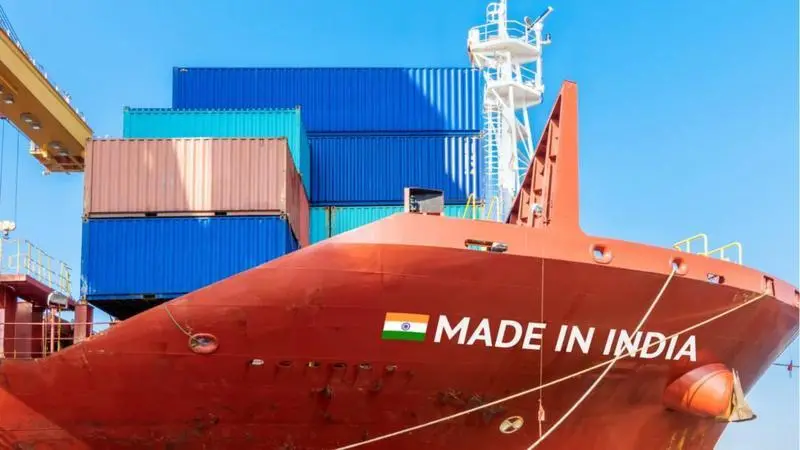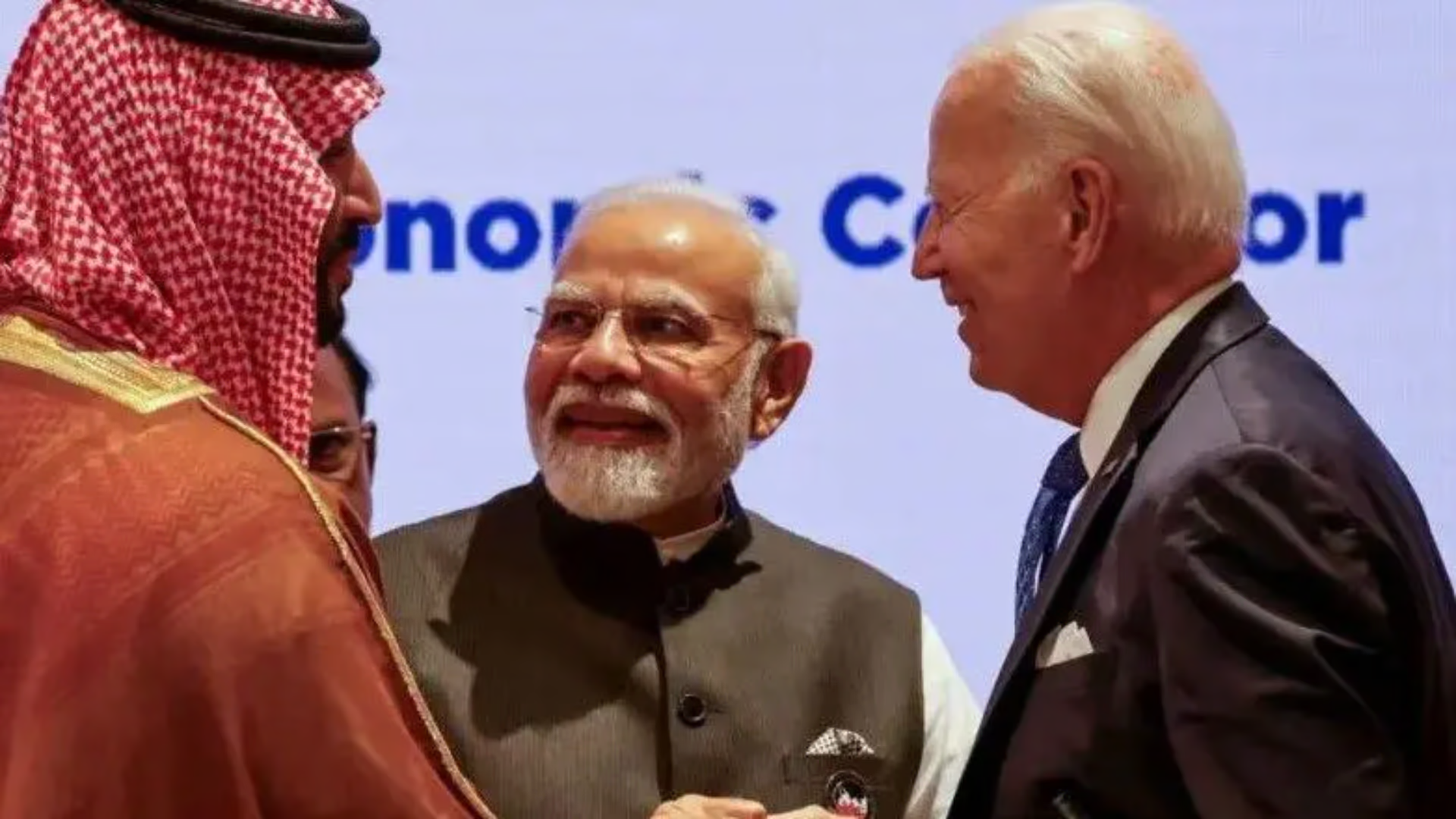The US and mediator Qatar have said that Israel and Hamas have agreed to end the ongoing war in Gaza.
According to the terms of the agreement, Hamas will release Israeli hostages. In return, Israel will also release Palestinian prisoners. Considering the Israel-Hamas war that has been going on for the last one and a quarter years, this is being considered an important success.
On 7 October 2023, Hamas extremists attacked southern Israel. After this Israel started attacks in Gaza.
According to the Hamas-run Health Ministry, 46,700 people have died in Israeli attacks so far. Most of them are civilians.
According to analysts, the ongoing war between Israel and Hamas has not only spread instability in the Middle East but the whole world has been affected by it.
India is also not untouched by this. This is the reason why the Indian Foreign Ministry has welcomed the agreement for a ceasefire and the release of hostages in Gaza.
The statement of the Ministry of External Affairs of India said, “India hopes that this agreement will continue to deliver humanitarian aid to the people of Gaza without hindrance. We have been continuously advocating the release of all hostages, ceasefire, dialogue, and diplomacy to resolve this issue. “
According to US President Joe Biden, under this agreement, which will be implemented in three phases, steps will be taken related to ceasefire, release of hostages, and reconstruction of Gaza.
India can also get relief on many fronts from the agreement between Israel and Hamas.
India has deep economic and strategic interests linked to the Middle East, which is going through a period of instability due to the conflict between Israel and Hamas.
In such a situation, it becomes important to know how the war going on between Israel and Hamas has affected India’s interests and where will it get relief from the ceasefire now.
Energy security
India is the third largest importer of crude oil after the US and China. India meets 85 percent of its oil needs through imports.
After the attack on Ukraine, India increased oil imports from Russia significantly. But Middle East countries still have a large share in its oil imports.
Despite the increase in oil purchases from Russia, between April and September 2023, India bought 44 percent of its oil needs from Middle East and African countries.
A year ago this figure was 60 percent.
When Israel attacked Iran in April 2024, the price of crude oil suddenly rose and it reached $ 90 per barrel.
Similarly, when the Biden administration of America imposed new sanctions on Russia on January 13, 2025, oil prices also rose once again.
If unrest increases in the Middle East, India’s import bill will keep increasing. Expensive oil will increase the cost of production in India. This will be a setback to India’s efforts to control inflation.
The ceasefire between Israel and Hamas will bring stability in the Middle East and India will get relief on the oil import front.
Every ten-dollar increase in the Brent futures price of crude oil increases India’s current account deficit by half a percent. The increased oil prices also increase the cost of India’s oil refining companies.
Since refined oil (petrol) is one of the major items exported by India, the increase in crude oil prices can make India’s exports expensive.
Therefore, if peace in the Middle East makes crude oil cheaper, then India will definitely feel relieved.
Relief on the trade front
After the war between Hamas and Israel, Hamas-backed Houthi rebels started targeting ships going to Israel through the Red Sea.
Houthi rebels had targeted many merchant ships here with rockets and drones.
The safety of Indian sailors on Yemen’s sea coasts and in the western Indian Ocean was threatened and there were apprehensions of disruptions in trade with Indian ships.
The Indian Navy had launched several operations here to protect ships from attacks.
Due to attacks by Houthi rebels, shipping costs on this route had increased. Obviously, if there is peace on this sea route, shipping companies will get relief and obstacles in sea trade will end.
Explaining this aspect, Dr. Fazzur Rahman, a senior fellow with the Indian Council of World Affairs, said, “The Red Sea is an important sea route for trade between Europe, Africa and Asia. The share of America, Europe and North African countries in India’s import-export is more than 37 percent. And this trade mostly takes place through the Red Sea and the Suez Canal. Therefore, you can understand the importance of peace on this route.”
Earnings from Middle East countries
According to the estimated figures of the government, out of 1.34 crore NRIs, about 90 lakh Indians live in Gulf countries who send an amount of about 50 to 55 lakh dollars to India every year.
In the year 2020-21, UAE, Saudi Arabia, Kuwait and Qatar have a 29 percent share in the income sent from outside India.
After this comes the US, where Indians living there have a 23.4 percent share in the amount sent to the country.
Dr. Fazzur Rahman says, “If there is peace in the Middle East, then India can be sure about the safety of Indians working there. If the war between Hamas and Israel had spread to these areas, then India would have had to spend a huge amount to evacuate its workers from here. This would have been an additional burden on India. “
In the 1990s, India had to spend a huge amount to evacuate its 1 lakh 10 thousand citizens from Iraq and Kuwait due to security reasons.
Benefit to the defense sector
After the ceasefire agreement, Israel will be able to focus on the stalled defense deals with India.
According to the data of Stockholm International Peace Research Institute, from 2012 to 2022, Israel has exported weapons worth $ 2.9 billion to India.
During this period, India remained the largest buyer of Israeli weapons. In 2017, India bought weapons worth more than $ 600 million from Israel.
In 2022, India bought weapons worth more than $240 million from Israel. This was 30 percent of Israel’s defense exports.
During this period, Israel sold defense equipment like sensors, fire control systems, missiles (air defense systems), UAVs to India.
India also bought Barak Air Defense System, Heron and Spice series guided bombs.
However, there is no evidence that the war between Israel and Hamas has slowed down defense cooperation between India and Israel. But after the ceasefire, defense cooperation will pick up pace.
In recent years, the interest of Middle Eastern countries in India and India in Middle Eastern countries has increased.
Economic cooperation has increased from both sides. Investment in each other’s countries has also increased between India and Middle Eastern countries.
Fazzur Rahman says, “After the ceasefire, cooperation between I2U2 i.e. India, Israel, United Arab Emirates and America will increase further. With this, the work of India Middle East Corridor will also move forward.”
On Wednesday, US President Joe Biden said that the ceasefire can now turn the India Middle East Corridor into reality.
The India Middle East Corridor is considered to be a response to China’s One Belt One Road Initiative.
This agreement has been signed by India, the US, Saudi Arabia, the UAE, the European Union, France, Germany and Italy.
It was signed in New Delhi. Through this, traffic and communication links will be established between Europe and Asia through rail and shipping networks.
The work of the India Middle East Corridor has not progressed due to the Hamas attack on Israel on 7 October 2023.
India’s soft power

The third phase of the ceasefire is reconstruction in Gaza. India can also be a stakeholder in this.
Indian companies can get work here. Indian workers are already being sent to Israel. This pace had slowed down due to security reasons.
After the ceasefire, more and more Indian workers will be able to go to Israel.
Dr. Premanand Mishra, faculty member of the Nelson Mandela Center for Peace and Conflict Resolution at Jamia Millia Islamia University, says, “The work of increasing humanitarian aid in Gaza will also accelerate now. India will play an important role in this and will actively participate in the efforts to establish peace. This will be an example of India’s soft power.”
Premanand Mishra says that a ceasefire between Israel and Hamas can be convenient for India. However, it will depend on how the ceasefire is implemented.
Read in Hindi


